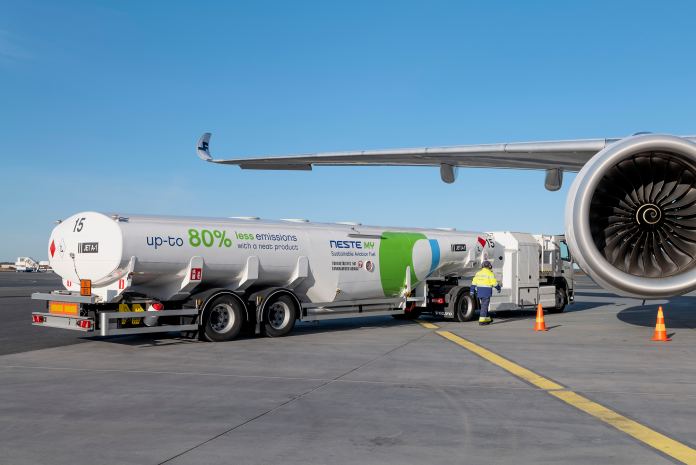The International Air Transport Association (IATA) has warned that current policy approaches, especially in Europe, risk slowing the growth of Sustainable Aviation Fuel (SAF) production and undermining aviation’s broader decarbonization goals. IATA expects global SAF output to double to 2 million tonnes (2.5 billion liters) in 2025, yet this will account for only 0.7% of the total fuel consumed by airlines worldwide.
Willie Walsh, IATA’s Director General, emphasized that while the growth is encouraging, the volume is still minimal and comes at a significant cost. “Although encouraging, 2 million tonnes is a drop in the ocean. Even this small quantity will add $4.4 billion to the global fuel bill. The pace of SAF production must increase, and costs must come down quickly,” he stated.
One of the most pressing issues is how current mandates in Europe are impacting SAF costs and distribution. With SAF mandates now in effect across the EU and UK from 1 January 2025, most SAF is being redirected to Europe, driving up prices due to compliance fees imposed by producers and suppliers. Airlines are expected to purchase one million tonnes of SAF to meet these mandates in 2025, with market prices estimated at $1.2 billion. However, an additional $1.7 billion is expected in compliance fees—extra costs that could have abated an estimated 3.5 million tonnes of CO₂ emissions if used more efficiently.
Walsh criticized the premature implementation of mandates, noting that they have made SAF five times more expensive than conventional jet fuel. “These policies raise the cost of decarbonization without the safeguards needed to manage market behavior. Europe must recognize that its current strategy is not working and must explore alternatives,” he said. He stressed that increasing the already staggering $4.7 trillion price tag for the industry’s energy transition should not be the outcome of ineffective regulation.
To help stabilize and scale the global SAF market, IATA is supporting two critical initiatives. The first is a SAF registry managed by the Civil Aviation Decarbonization Organization (CADO), designed to track SAF purchases, usage, and related emissions reductions under international frameworks such as the Carbon Offsetting Scheme for International Aviation (CORSIA) and the EU Emissions Trading Scheme. The second is a SAF Matchmaker platform that connects airlines with SAF suppliers to streamline procurement.
IATA is also calling on governments to enact more effective policies to support renewable energy and SAF production. This includes correcting market imbalances that favor fossil fuel producers and redirecting a portion of the $1 trillion in global fossil fuel subsidies to SAF development. The organization also advocates for a more integrated approach to energy policy that boosts renewable energy output and ensures aviation receives an equitable share of SAF. Additionally, IATA urges governments to uphold CORSIA as the sole market-based mechanism for managing international aviation’s CO₂ emissions. Currently, Guyana is the only country to make carbon credits available for airline CORSIA compliance, and more participation is needed to ensure the program’s success.
India, one of the world’s fastest-growing economies and the third-largest oil consumer, is also emerging as a key player in the SAF landscape. Through its leadership of the Global Biofuels Alliance, India is promoting biofuels and sustainable aviation fuels as central to energy transition and long-term economic growth. The country has set a target for 2% SAF blending in international flights by 2028 and is backing this with guaranteed pricing mechanisms, capital support for new projects, and the development of technical standards. IATA is partnering with the Indian Sugar & Bio-Energy Manufacturers Association (ISMA) and Praj Industries Limited to provide guidance on best practices for assessing the environmental lifecycle of feedstocks used in SAF production.
With its position as the third-largest civil aviation market globally, India has a unique opportunity to lead the way in sustainable fuel development. Progressive policies and international collaboration could make it a blueprint for SAF adoption in emerging economies.













